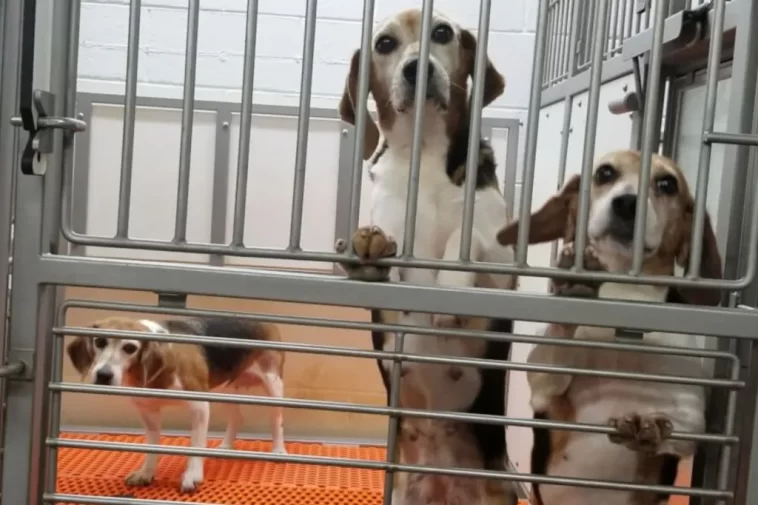According to a recent report, the National Institutes of Health spent approximately $2.3 million between 2020 and 2021 on an experiment involving injecting beagles with cocaine.
The White Coat Waste Project, a group trying to stop taxpayer-funded experiments on animals, revealed documents they had obtained through a Freedom of Information Act request.
The documents, published Monday, show that the research agency disbursed $2.3 million to the project.
“The objective of this study is to evaluate the potential adverse cardiovascular effects that may result when [redacted] (test article) and cocaine (interaction article) are administered together to male Beagle dogs,” the study states.
It also explains that the study was designed to show medication can alter the effects of cocaine in the body.This is not the first time NIH has used beagles in taxpayer-funded experiments.
Devin Murphy, public policy and communications manager at WCWP, told Fox News Digital, “#BeagleGate just got bigger. Taxpayers should not be forced to foot the multi-million-dollar bill for wasteful and cruel ‘Coke Hound’ experiments in which beagle puppies are injected with cocaine just to fulfill burdensome and outdated FDA red tape”.
“The NIH is addicted to spending and it’s time we got this waste and abuse off of the taxpayer’s back,” he added.
The NIH and National Institute on Drug Abuse gave a statement Wednesday to Fox News Digital, explaining that there aren’t medication treatments approved by the Food and Drug Administration for stimulant use disorders.
“In 2020, a record-breaking 91,799 people died from a drug overdose in the United States. While much of the focus has been on opioid-involved overdoses, stimulant drugs like cocaine and methamphetamine are an increasing threat, with 19,447 of the overdose deaths in 2020 involving cocaine and 23,837 of the overdose deaths in 2020 involving psychostimulants (primarily methamphetamine),” it said.
The toxicology studies were conducted “in a preclinical model to test the safety of a novel drug for the treatment of cocaine use disorder before moving it into a human study”.
The NIH and NIDA said, “This is done for the sole purpose of ensuring that a new medication will be safe in people who are seeking treatment for cocaine use disorder, and who may resume cocaine use while in treatment”.
When the study was completed, the dogs were sent back to the Charles River animal colony, where they were purchased, or “euthanized,’ according to documents.
Documents claim the studies “comply with all applicable sections of the Animal Welfare Act…the Public Health Service Policy on Humane Care and Use of Laboratory Animals from the Office of Laboratory Animal Welfare…and the Guide for Care and Use of Laboratory Animals from the National Research Council”.


